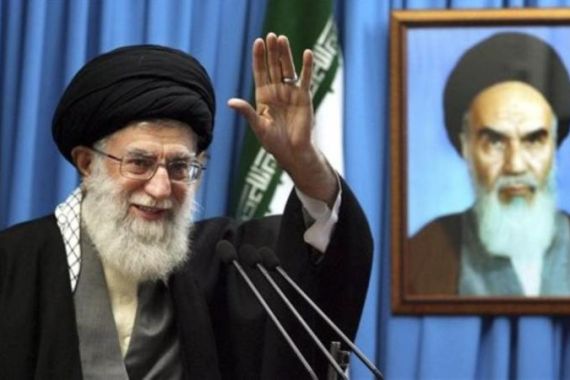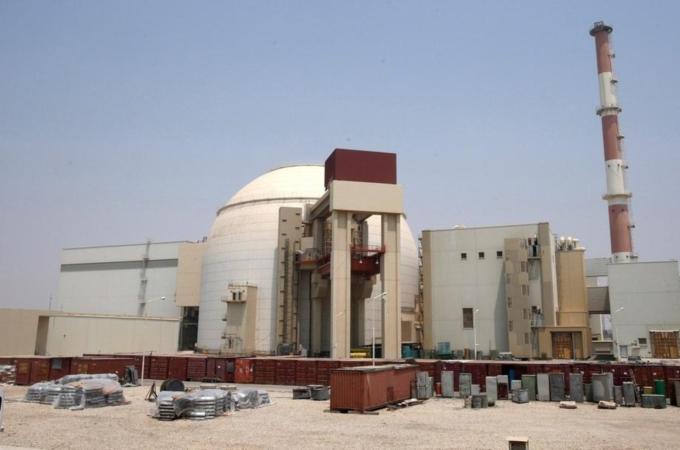Why sanctions on Iran are not working
While sanctions are having a devastating effect on Iran’s economy, they have not changed Tehran’s nuclear calculus.

As EU foreign policy chief Catherine Ashton and Iran’s lead envoy Saeed Jalili meet in Istanbul on May 15, the six global powers negotiating with Tehran face an increasingly inconvenient truth: while sanctions are having a devastating effect on Iran’s economy, they have not changed Tehran’s nuclear calculus. Although some policymakers and pundits privately concede this point, there is no consensus as to why. Hardliners tend to argue that sanctions are not tough enough and must be intensified. Elements on the left argue that sanctions must be given time to make an impact.
In reality, both sides miss the real reasons that have rendered sanctions unsuccessful – by failing to offer a credible exit from the sanctions pain, neither the Iranian government nor stakeholders in the Iranian system believe that a change in nuclear policy will lead to the alleviation of their economic suffering.
The current sanctions policy is based on a shaky assumption – the belief that economic pain and dissatisfaction among political elites automatically will result in pressure on the Iranian regime to change its nuclear course. This assumption does not hold. The economic pain imposed on Iran is intense – but directionless.
Instead, stakeholders in the Iranian system favouring a change are stuck between a dominant narrative that portrays the West as a brutal group out to “get” Iran and keep it dependent on foreign powers, and Western pressure that has failed to offer a convincing exit from the sanctions pain. The two have proven mutually reinforcing and have weakened those elements that the West hoped would push for a nuclear course correction.
Supreme Leader Ali Khamenei’s narrative continues to dominate the discourse within Iran’s political elite and has gained an air of vindication due to the unending stream of sanctions imposed on Iran. No potent counter-narrative has emerged within the elite. One well-positioned businessman with links to the security apparatus explained it as follows:
“The core around Ayatollah Khamenei is not only the most powerful, but also the only group that has a strategy.”
Moreover, economic stakeholders have not channelled their dissatisfaction with sanctions by pressing the top leadership to change course. In the absence of meaningful sanctions relief they have both lacked the incentives to challenge Khamenei’s line and the confidence that their challenge could gain traction. Instead, they have focused on securing economic concessions for themselves. So far, Khamenei has delivered. In February, for instance, he signed a decree highlighting 23 new benefitsto Iran’s private sector – all pertaining to an improved investment and production environment, none related to Tehran’s nuclear strategy.
 |
| Spotlight
Iran Tensions
|
Neither intensifying sanctions nor waiting for them to sink in will change this internal dynamic in Iran.
Successful cases in which enormous external pressure shifted the Islamic Republic’s policy on a central national security issue – such as Ayatollah Khomeini’s decision to “drink the cup of poison” and end the Iran-Iraq war – included both a challenge to the dominant narrative and influential stakeholders pushing for a policy shift.
This was made possible because it was clear to the Iranians that “drinking the poison” would unquestionably end the war, and they had confidence that Saddam Hussein could deliver on his end of the bargain. Tehran does not perceive a similar situation today, as two key issues remain unclear: what sanctions would be lifted if Iran was to succumb the Western pressure, and perhaps more importantly, whether the West has the ability to deliver on sanctions relief.
In some ways, Khamenei is also stuck. His behaviour suggests he is aware of his regime’s growing unpopularity. Since 2009, the regime has lost several constituencies, rendering the few who believe in its legitimacy all the more crucial. To these constituencies, the narrative of resistance against the West to uphold Iran’s independence is essential.
Any move by the regime that will be perceived by these constituencies as capitulation to Western demands risks turning them against Khamenei. Mindful of Khamenei’s already weak support base, the loss of these last constituencies could be existential and prove a greater threat to his regime’s survival than even a military confrontation with the US. Though the regime does not believe it can win a war against the US, it does believe it can survive it. It does not believe, however, that it can survive capitulation on the nuclear issue.
And therein lies the danger of the current sanctions approach: Absent a credible exit, Iran is more likely to escalate than compromise, which in turn will increase the likelihood of war – the very outcome that sanctions are ostensibly being used to avoid.
Trita Parsi is founder and president of the National Iranian American Council.
Reza Marashi is director of research at the National Iranian American Council.
You can follow the editor on Twitter: @nyktweets